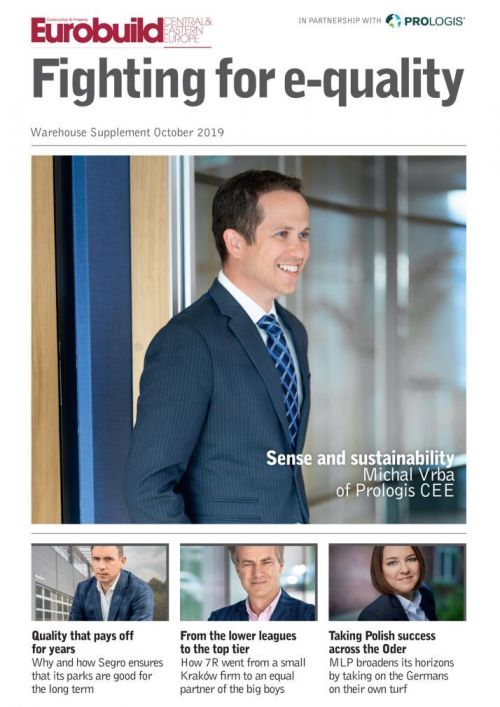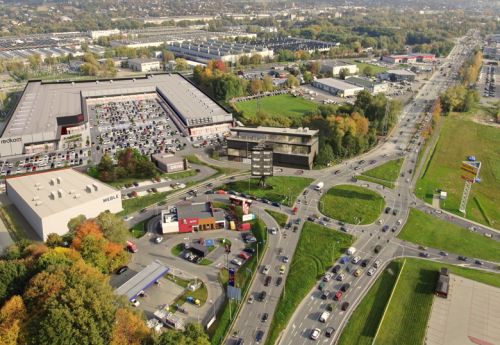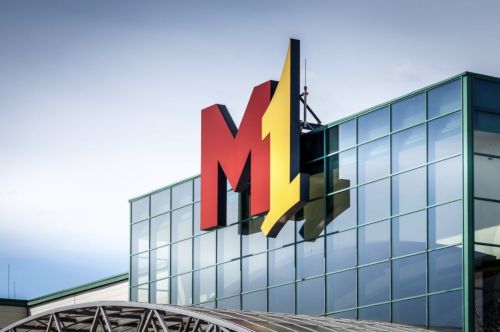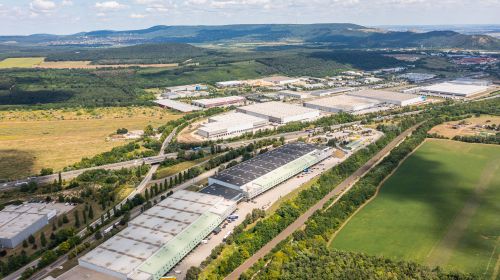The Frisco kid looks to the future
E-commerce
Frisco.pl has been generating losses of between PLN 12 mln and PLN 13 mln and this has held true for the last three years. “We are still at a stage where we are investing heavily. With our business model we expect it to take us a year or more till we start making a profit. Before this time comes, we should have certain individual profitable months,” claims Grzegorz Bielecki, a board member of Frisco.pl.
Service from the inside
The company, which is owned by MCI Management and Eurocash, opened a new 11,000 sqm distribution centre at Panattoni City Logistics Warsaw I in Klaudyn near Warsaw last May. At its heart is a huge automated warehouse (which they call a ‘shuttle’), which is able to pick out around 190,000 items a day to assemble the company’s orders. This comes to around 132 items a minute. Without human hands, the machinery picks out products from 36,000 separate compartments. “This means we can handle more orders at a lower cost,” points out Grzegorz Bielecki. Today, Frisco’s new distribution centre employs half the number of its staff at its old centre in Warsaw’s Praga Południe district. The new centre can also process many more orders – up to around 4,000 deliveries per day, as compared to 900 deliveries in the previous centre (although by the end of its operations it handled around 1,500 deliveries a day). But how profitable is investing in automation? Frisco.pl won’t provide hard numbers, but Grzegorz Bielecki reveals that the savings from automating the picking process are enough to cover the monthly instalments for the machinery. But unfortunately, not everything can be automated. “We haven’t automated the assembly of orders for those goods that we sell in bulk quantities or for verty large sized goods. These are assembled directly from pallets and there are no systems on the market that handle such goods at a cost that would be profitable,” he says. Similarly, there is no system that will automatically pick out frozen foods or fruit and vegetables. However, the company’s current level of automation was enough to make Frisco.pl the first big player on the e-grocery market in Poland to start same-day deliveries, a service that was officially launched in September after also having been available during an earlier two-week testing period.
Computer controlled delivery
To achieve such delivery times, the crucial investment was in the company’s computer systems. Frisco.pl was the first grocer to give customers the choice of specific delivery hours. “We know that customers don’t like waiting around two hours for a courier, not knowing when exactly to expect them. Our customers say that being able to specify the time of a delivery is one of the most important factors in why they shop regularly on Frisco.pl,” explains Grzegorz Bielecki. The times offered to customers are determined by a computer program that processes such data as the availability of delivery vans and the number of deliveries and travel times between specific addresses, with the routing itself also being determined by computer for each vehicle. “It is a special algorithm that is constantly learning and can even take account of the time needed to service each specific customer. It keeps track of where a driver stopped last time and how long the delivery took. It uses this information to continuously update the route on an ongoing basis. This is the system that allows us to make our deliveries on time,” he adds.
One other advantage Frisco holds is that it is a pure online grocer, unlike other retailers such as Tesco or Auchan. This gives Frisco.pl total control over its inventory. Unlike retail chains, goods at Frisco.pl are not taken from the same shelves used to supply customers walking around a physical store. So it is always known what products are in stock and what the expiry dates are. The customer also has this same information when placing an order online. “Because of this, we avoid having to phone up the customer to tell them that we don’t have a particular product in stock, which is something that often happens to our competitors. We also avoid the problem of replacement goods. Our customers donʼt have to decide at the door whether to accept a replacement or not. With us they get exactly what they ordered from the start,” says Grzegorz Bielecki.
Service is everything
He then goes on to say that what is becoming the most important factor in winning over customers on the market is shopping convenience. “You can shop with us at any time, on any device, with delivery straight to the kitchen at a time chosen by you. This is shopping at its most convenient,” he claims. What is key is the quality of service because a poorly served customer will go to the competition or will entirely give up on shopping for groceries online. “We donʼt really sell any products. They can be bought in any store. What we sell is a service, which is delivering all the necessary groceries to the home,” he claims.
The e-grocery market is not a particularly easy business. Around half of the sector’s turnover comes from Warsaw with the rest being fragmented across other cities. This is the reason why Frisco is still only available in the capital and its satellite towns, although the company is considering entering other cities. Tesco, which runs such a service in a number of cities, was forced to close down some of its branches. Auchan, despite ambitious plans, has also not ventured beyond Warsaw. Amazon has announced its plans to start an e-grocery delivery service, but has so far been in no hurry to do so. Why is this market so difficult? “Poles like to go shopping. We are a people that likes to go to brick-and-mortar stores almost 360 times a year. This is the highest rate in Europe. You could say that shopping is our national sport,” explains Grzegorz Bielecki. Despite all this, the e-grocery trade is growing rapidly in Poland at around 20 pct year-on-year. “This is the fastest growing channel on a very competitive grocery market. According to estimates, the value of e-groceries in Poland is to undergo a more than five-fold increase by 2030. More and more purchases are moving online from the real world, and this trend is set to continue as younger generations enter the market. So it seems to us that this is a sector that is very much worth being in,” points out Grzegorz Bielecki.
Scale to the rescue
However, from a financial point of view, what looks most promising for the company is its growing scale of operations. “Our turnover is increasing on average by 30 pct year-on-year. Last year it reached 33 pct. I don’t think there are many chains in Poland that could brag about such results,” says Grzegorz Bielecki. The increase in turnover is resulting in a decrease in unit costs. For example, with transport: when there is a greater number of orders, each individual van no longer needs to travel such large distances and can therefore make more deliveries faster and cheaper. Frisco.pl believes that the growth trajectory it has experienced over recent years is set to continue. “We believe that free same-day deliveries, which we have been offering since September, ideally suit people’s needs and will allow us to reach customers who have not yet considered shopping for groceries online. But that’s not the only innovation we’re introducing this year. We are going to start using Google Assistant and have plans to introduce even more new services to our mobile app by the end of the year,” reveals the board member of Frisco.pl. ν




















































